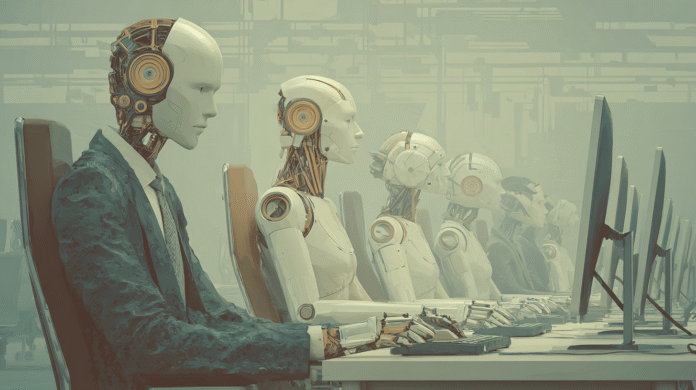Within the race to automate all the pieces – from customer support to code – AI is being heralded as a silver bullet. The narrative is seductive: AI instruments that may write complete purposes, streamline engineering groups and cut back the necessity for costly human builders, together with a whole bunch of different jobs.
However from my standpoint as a technologist who spends every single day inside actual firms’ information and workflows, the hype doesn’t match up with the truth.
I’ve labored with trade leaders like Normal Electrical, The Walt Disney Firm and Harvard Medical College to optimize their information and AI infrastructure, and right here’s what I’ve realized: Changing people with AI in most jobs continues to be simply an concept on the horizon.
I fear that we’re considering too far forward. Prior to now two years, greater than 1 / 4 of programming jobs have vanished. Mark Zuckerberg introduced he’s planning to exchange lots of Meta’s coders with AI.
However, intriguingly, each Invoice Gates and Sam Altman have publicly warned in opposition to changing coders.
Proper now, we shouldn’t depend on AI instruments to efficiently substitute jobs in tech or enterprise. That’s as a result of what AI is aware of is inherently restricted by what it has seen – and most of what it has seen within the tech world is boilerplate.
Generative AI fashions are skilled on giant datasets, which usually fall into two most important classes: publicly obtainable information (from the open web), or proprietary or licensed information (created in-house by the group, or bought from third events).
Easy duties, like constructing a fundamental web site or configuring a template app, are simple wins for generative fashions. However with regards to writing the subtle, proprietary infrastructure code that powers firms like Google or Stripe, there’s an issue: That code doesn’t exist in public repositories. It’s locked away contained in the partitions of firms, inaccessible to coaching information and sometimes written by engineers with many years of expertise.
Proper now, AI can’t cause by itself but. And it doesn’t have instincts. It’s simply mimicking patterns. A pal of mine within the tech world as soon as described giant language fashions (LLMs) as a “actually good guesser.”
Consider AI at the moment as a junior group member — useful for a primary draft or easy tasks. However like all junior, it requires oversight. In programming, for instance, whereas I’ve discovered a 5X enchancment for easy coding, I’ve discovered that reviewing and correcting extra difficult AI-produced code usually takes extra time and vitality than writing the code myself.
You continue to want senior professionals with deep expertise to search out the issues, and to grasp the nuances of how these flaws may pose a threat six months from now.
That’s to not say AI shouldn’t have a spot within the office. However the dream of changing complete groups of programmers or accountants or entrepreneurs with one human and a number of AI instruments is way untimely. We nonetheless want senior-level individuals in these jobs, and we have to prepare individuals in junior-level jobs to be technically succesful sufficient to imagine the extra advanced roles sooner or later.
The objective of AI in tech and enterprise shouldn’t be about eradicating people from the loop. I’m not saying this as a result of I’m scared AI will take my job. I’m saying it as a result of I’ve seen how harmful trusting AI an excessive amount of at this stage will be.
Enterprise leaders, it doesn’t matter what trade they’re in, needs to be conscious: Whereas AI guarantees price financial savings and smaller groups, these effectivity positive factors may backfire. You may belief AI to carry out extra junior ranges of labor, however to not full extra refined tasks.
AI is quick. People are good. There’s a giant distinction. The earlier we shift the dialog from changing people to reinforcing them, the extra we’ll reap the advantages of AI.
Derek Chang is founding associate of Stratus Knowledge.

